Christoph Kiefer, M.Sc.
D-65366 Geisenheim
Room 1.1
Kreuzweg 25
65366 Geisenheim
Project start: 01.05.2024
Project end: 31.12.2028
Sponsor: Ministerium für Wirtschaft, Verkehr, Landwirtschaft und Weinbau Rheinland-Pfalz
The project aims to further develop and optimize the sales index of the digital sales analysis for the wine industry in Rhineland-Palatinate. The objective is to enhance the analytical depth and relevance of the sales analysis, providing a solid basis for strategic decision-making within the sector.
Key Project Objectives:
1. Development and Implementation of a Methodology for Representative Weighting
o Design and implementation of a statistically sound methodology for the representative weighting of sales data specific to the state of Rhineland-Palatinate.
o Ensuring that the results accurately reflect the structure of the wine industry in Rhineland-Palatinate and provide a precise depiction of market developments.
2. Development and Implementation of a Quarterly Analysis Module
o Creation of a quarterly reporting system for the Rhineland-Palatinate wine industry, modeled after the existing monthly sales analysis.
o Development of an automated analysis module that enables the provision of quarterly reports with up-to-date sales data.
o The quarterly reports will offer wine producers, associations, and policymakers more detailed and timely insights into market trends and developments.
These measures will further professionalize the digital sales analysis. By introducing quarterly reports and applying representative weighting to the sales data, stakeholders in the Rhineland-Palatinate wine industry will have access to timely, data-driven insights on market performance. This enhanced data foundation will support strategic decision-making and promote the economic sustainability of the sector.
Project start: 17.06.2019
Project end: 31.12.2025
Sponsor: Federal Ministry of Food and Agriculture
The control of downy mildew, caused by Plasmopara viticola, is one of the major challenges in viticulture,
especially in organic viticulture. Due to the ban of copper-containing pesticides and massive impacts of
climate change, organic viticulture is increasingly entering an economic crisis. Therefore, the aim of the
proposed joint project "VITIFIT" is to develop a catalogue of measures with practicable strategies for
maintaining grapevine health. In this way, cultivation conditions are improved, the production security is
consolidated and thus economic viability is guaranteed. Crop protection strategies will mainly be based on
copper minimisation (microencapsulated copper salts) and copper substitutes (plant extracts, UVC
technology) and their combination. Associated cultivation and cultural measures should reduce the
inoculum potential of P. viticola. Molecular biological analyses will address the mycobiome of the vine leaf
under these conditions. Particular attention should be paid to the plant protection agent potassium
phosphonate. Existing and newly bred fungus tolerant grape varieties (in German: PIWIs) should play a
central role in the developed action plans. Aims here are the improvement of the enological wine style, the
market acceptance of PIWIs and their introduction into practice. The identification of new resistance loci
against P. viticola and their integration into current breeding lines will support the development of novel
PIWIs. Another focus of the project is the adaptation of the forecast model "VitiMeteo Rebenperonospora"
to PIWIs. In the sector of knowledge and technology transfer, communication, the flow of information and
networking between research and practice are to be optimised. The VITIFIT project should make a
significant contribution to achieving the "20% goal" (national sustainability goal concerning the percentage
of organic agriculture area).
Date: 26.06.2024
Location: Neustadt a.d.W. (Deutschland)
Speaker: Kiefer, Christoph
Date: 09.01.2024
Location: Eltville am Rhein (Deutschland)
Speaker: Kiefer, Christoph
Date: 30.11.2023
Location: Bozen (Italien)
Speaker: Kiefer, Christoph
Date: 21.11.2023
Location: Mainz (Deutschland)
Speaker: Kiefer, Christoph
Date: 03.11.2023
Location: Oppenheim (Deutschland)
Speaker: Kiefer, Christoph
Date: 03.05.2023
Location: Veitshöchheim (Deutschland)
Speaker: Kiefer, Christoph
Date: 03.05.2023
Location: Veitshöchheim (Deutschland)
Speaker: Kiefer, Christoph
Date: 24.04.2023
Location: Geisenheim (Deutschland)
Speaker: Kiefer, Christoph
Date: 20.03.2023
Location: Heilbronn (Deutschland)
Speaker: Kiefer, Christoph
Date: 11.03.2023
Location: Worms (Deutschland)
Speaker: Kiefer, Christoph
Date: 06.02.2023
Location: Online (Deutschland)
Speaker: Kiefer, Christoph
Date: 23.11.2022
Location: Freiburg (Deutschland)
Speaker: Kiefer, Christoph
Date: 14.11.2022
Location: Ingelheim am Rhein (Deutschland)
Speaker: Kiefer, Christoph
Date: 10.11.2022
Location: Neustadt. a.d.W. (Deutschland)
Speaker: Kiefer, Christoph
Date: 10.11.2022
Location: Neustadt a.d.W. (Deutschland)
Speaker: Kiefer, Christoph
Date: 11.10.2022
Location: Athen (Griechenland)
Speaker: Kiefer, Christoph
Date: 01.09.2022
Location: Mainz (Deutschland)
Speaker: Kiefer, Christoph
Date: 26.08.2022
Location: Neustadt a.d.W. (Deutschland)
Speaker: Kiefer, Christoph
Date: 24.08.2022
Location: Neustadt a.d.W. (Deutschland)
Speaker: Kiefer, Christoph
Date: 06.07.2022
Location: Dijon (Frankreich)
Speaker: Kiefer, Christoph
Date: 19.05.2022
Location: Freiburg (Deutschland)
Speaker: Kiefer, Christoph
Date: 03.05.2022
Location: Mühlhofen (Deutschland)
Speaker: Kiefer, Christoph
Date: 11.04.2022
Location: Stuttgart / online (Deutschland)
Speaker: Kiefer, Christoph
Date: 25.11.2021
Location: Montpellier (Frankreich)
Speaker: Kiefer, Christoph
Date: 27.10.2021
Location: Siebeldingen (Deutschland)
Speaker: Kiefer, Christoph
Date: 30.09.2021
Location: Geisenheim (Deutschland)
Speaker: Kiefer, Christoph
Date: 07.07.2021
Location: Dijon / online (Frankreich)
Speaker: Kiefer, Christoph
Date: 29.04.2021
Location: Online (Deutschland)
Speaker: Kiefer, Christoph
Date: 17.02.2021
Location: Online (Deutschland)
Speaker: Kiefer, Christoph
Date: 15.12.2020
Location: Online (Deutschland)
Speaker: Kiefer, Christoph
Date: 19.11.2020
Location: Online (Deutschland)
Speaker: Kiefer, Christoph
Date: 30.10.2020
Location: Neustadt/Weinstraße (Deutschland)
Speaker: Kiefer, Christoph
Date: 26.02.2020
Location: Siebeldingen (Deutschland)
Speaker: Kiefer, Christoph


